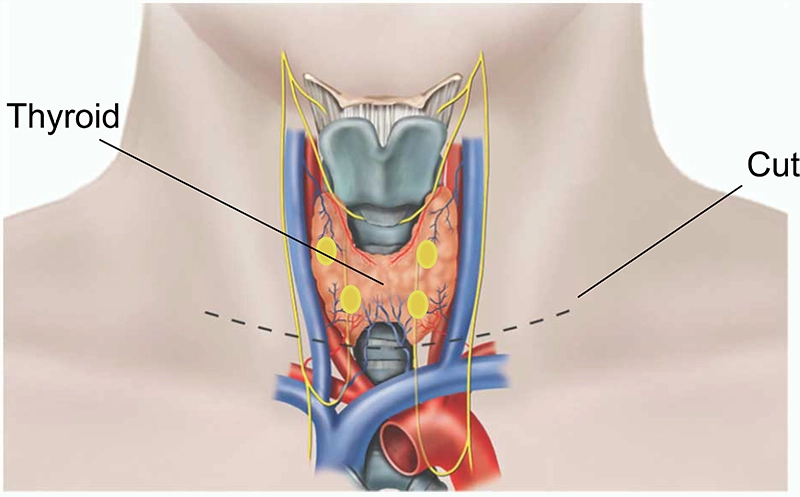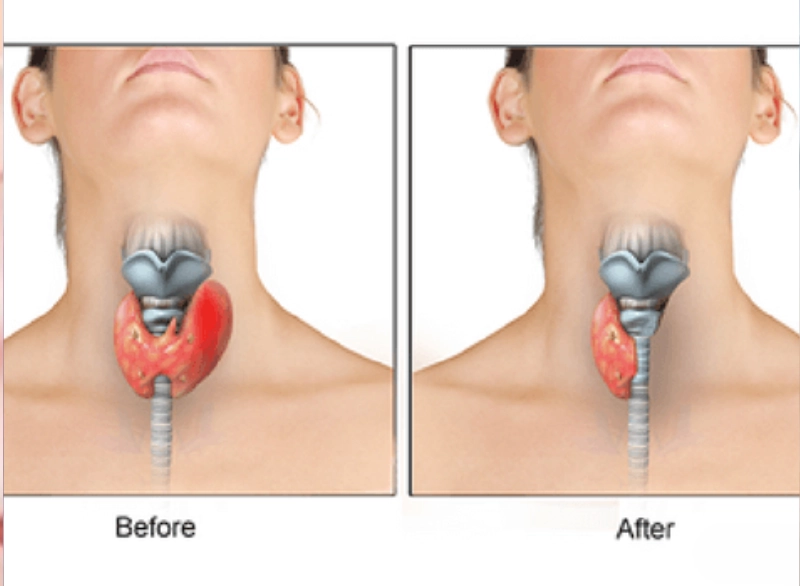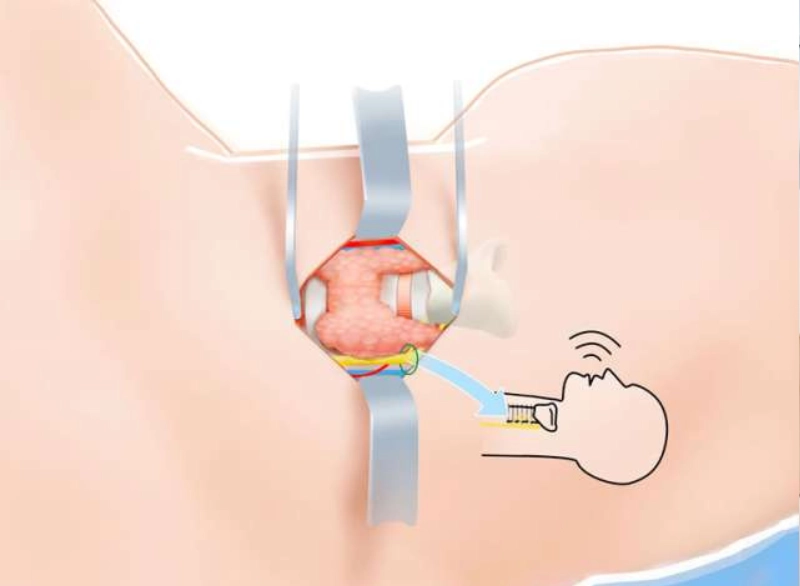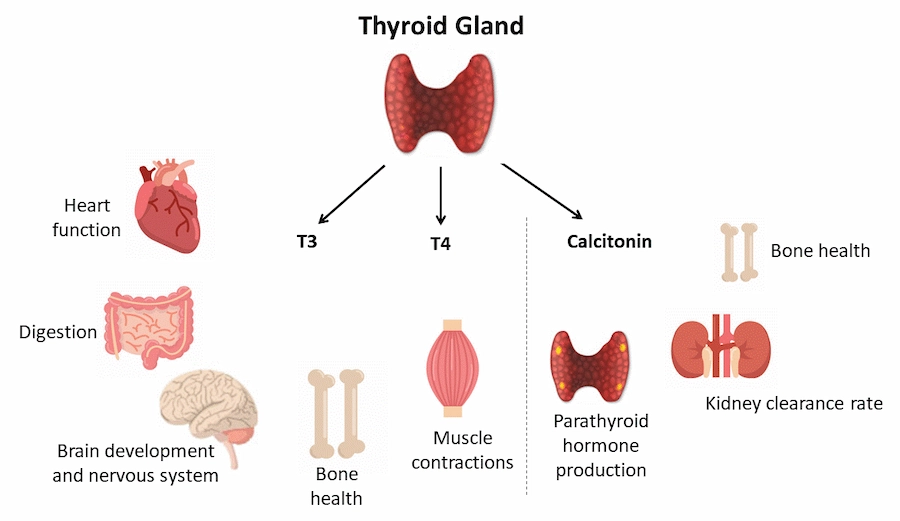Thyroidectomy
Thyroidectomy is a surgical procedure to remove all or part of the thyroid gland. It is performed to treat thyroid disorders such as nodules, cancer, or hyperthyroidism.
- Home
- Service
- Thyroidectomy

Description
The thyroid gland, located in the front of the neck, regulates metabolism through hormone production. When it develops growths, becomes overactive, or shows signs of cancer, surgical removal (thyroidectomy) is recommended.
Thyroidectomy can be partial (removing a lobe) or total, depending on the severity of the condition. The procedure is safe, and patients often return to normal activities within days, with ongoing hormone management if the entire gland is removed.
Thyroidectomy can be partial (removing a lobe) or total, depending on the severity of the condition. The procedure is safe, and patients often return to normal activities within days, with ongoing hormone management if the entire gland is removed.
Conditions Treated
- Thyroid nodules
- Thyroid cancer
- Hyperthyroidism
- Multinodular goiter
- Enlarged thyroid causing compression symptoms
Tests and Treatments Offered
- Thyroid function tests (TSH, T3, T4)
- Neck ultrasound
- Fine needle aspiration biopsy (FNAC)
- Radioisotope thyroid scan
- Partial or total thyroidectomy surgery
- Post-surgical hormone therapy & follow-up
Special Offer on Thyroidectomy
Actual Price
₹60,000
₹50,000/- Only
Estimated Stay: 2 Days
Book Appointment
How it works
Procedure and Process Treatment

Thyroid Evaluation
Comprehensive neck examination, lab tests, and imaging to confirm diagnosis and plan the surgery.

Surgical Planning
Based on findings, partial or complete thyroid removal is scheduled. Pre-anesthesia checkups are completed.

Thyroidectomy Surgery
The procedure is performed under general anesthesia. A small incision is made in the neck, and the gland is safely removed.

Recovery & Hormone Care
Patients are monitored post-op and usually discharged in 1–2 days. Hormone replacement therapy is started if needed.

Balance Your Hormones, Regain Your Energy
Lowcost Surgicals helps restore your health through precise thyroidectomy. With expert surgeons and thorough follow-up, we ensure you’re back to a healthier, balanced life without thyroid-related complications.
Frequently Asked Questions
Patients often have important questions before surgery. Here are the most common concerns answered to help you make informed decisions about your treatment.
If your entire thyroid is removed, you’ll need thyroid hormone replacement (like levothyroxine) for life. For partial removal, it may not be needed.
There is a small risk of vocal cord nerve injury, but with experienced surgeons and careful technique, it’s very rare.
The incision is placed in a natural neck crease and fades over time. Scar-minimizing techniques may also be used.


